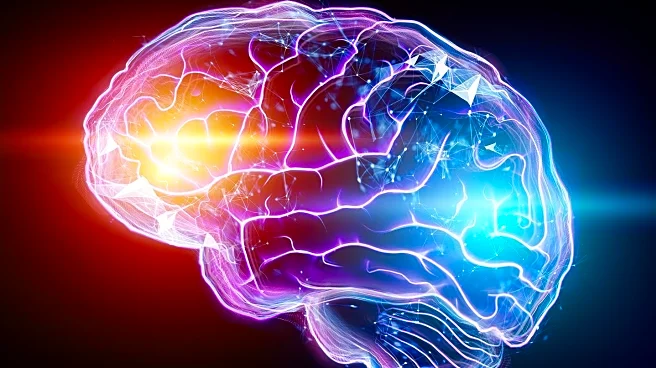What's Happening?
A study conducted by McGill University found that a cognitive training program, BrainHQ, boosts production of acetylcholine, a neurotransmitter linked to memory and attention. The trial involved 92 participants
aged 65 and older, who engaged in game-like activities designed to enhance cognitive function. Results showed a 2.3% increase in acetylcholine production in the anterior cingulate cortex, suggesting that brain training exercises can offset natural cognitive decline.
Why It's Important?
The findings highlight the potential of brain training programs to improve cognitive health in older adults, offering a non-invasive method to enhance memory and attention. This could have significant implications for aging populations, providing a tool to maintain mental acuity and potentially delay the onset of cognitive disorders. The study underscores the importance of continued research into effective interventions for age-related cognitive decline.
What's Next?
Further research is needed to explore the long-term effects of brain training on cognitive health and its potential applications for individuals with mild cognitive impairment or dementia. The study's promising results may lead to increased interest in developing and refining cognitive training programs for diverse populations.
Beyond the Headlines
The study contributes to a growing body of evidence supporting the benefits of cognitive training, challenging traditional views on aging and mental health. It emphasizes the importance of proactive approaches to cognitive wellness, encouraging individuals to engage in activities that stimulate brain function.










